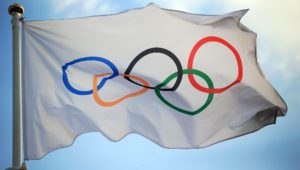The impact that the right nutrition can have on your sporting performance should not be under-estimated. As well as increasing our wellbeing and energy levels, vitamins and minerals have the ability to help protect against injury and ensure good muscle recovery.
Nutrition brand Pharma Nord explains some of the minerals that are important for good sporting performance.
The sunshine vitamin
How much do you know about vitamin D? According to a recent Pharma Nord health survey, 75 per cent of us have never had a vitamin D test, despite the fact that up to 50 per cent of UK adults are thought to be deficient.
 The majority of vitamin D (around 90 percent) is produced in the skin in response to strong sunlight, hence why it is often termed the ‘sunshine’ vitamin.
The majority of vitamin D (around 90 percent) is produced in the skin in response to strong sunlight, hence why it is often termed the ‘sunshine’ vitamin.
Vitamin D is known for its anti-viral and anti-bacterial properties, which means it can strengthen our immune system and help protect against flus and colds. It is also important for bone health, helping with the absorption of calcium and building stronger bones. This is especially important to reduce your risk of injury. Fractures and joint problems can result from repetitive loading over time, so consider taking a supplement to support your bone and joint health. Vitamin D3 (cholecalciferol) is identical to the form produced naturally in the skin.
Muscle recovery
One way to get your energy boost is a practical Energy bar or Liguid Energy Gel. Even more important for Athletes: Your recovery phase after the competition. A fast and full recovery is of utmost importance for rowers. Nutrition Experts like Sponsor, who is working with rowers since years are suggesting PRO RECOVERY. This is a carbohydrate-protein preparation for endurance and power athletes. The unique combination of the protein components whey, egg and casein in the ratio 1:1:1 as well as colostrum and potatoes-egg protein hydrolysates constitute an optimal protein mix for growth and maintenance of muscle mass. Enriched with several essential the amino acids. Pro Recovery is also enriched with vitamins of the B group and L-carnitine. B-vitamins like for instance B2 serves the muscle function as well as the energy-yielding metabolism.
Magic mineral
Make sure you get enough magnesium as it is vital for the structure and strength of bones and can help with muscle recovery. Foods to add to your diet include beans, nuts and whole grains such as brown rice and whole wheat bread. If choosing a supplement go for one with the hydroxide acetate and carbonate forms of magnesium as they can be best absorbed by your body. The recommended daily allowance (RDA) is 400mg/day. Bio-Magnesium contains 200mg of pure magnesium per tablet.
Essential fatty acids
One of the best sources of omega 3 is oily fish such as salmon, sardines and herring. This essential fatty acid helps to protect against inflammation which plays a part in many injuries and can also slow recovery. Omega 3 also helps to keep joints and tissues well lubricated, making it especially important for the action of rowing. Daily supplementation with a high quality fish oil derived from the flesh of the fish, rather than the liver, is recommended.
Strengthen your muscles and feel an energy boost
Working different muscle groups can result in soreness and fatigue. So, how can we protect our muscles from fatigue and ensure we have enough energy? When you feel your fatique and you dont want to fill your stomach with lots of food- maybe a Sponsor Energy Bar would be convenient. Most of our readers prefere the salty nut flovour. All of our cells need a vitamin-like substance called coenzyme Q10as part of their energy mechanism. In fact, Q10 is responsible for 95 per cent of our daily energy. The majority of Q10 is synthesised within the body, however our natural levels decline from our mid-twenties. Consider topping up with a high quality supplement. Q10 is fat-soluble so is best absorbed by the body when dissolved in oil-based capsules. Q10 raw material takes the form of a complex crystal structure, so check that the supplement manufacturer uses a process to break down the crystals so they can be absorbed.







This Post Has 2 Comments
Recommending supplements like this to rower, or any athlete is exceedingly risky. If you eat a well balanced diet it is highly unlikely you will need supplements. Any need for supplementation should be identified and prescribed by a health professional (General Practitioner, Dietitian or Nutritionist). All rowers should adopt a food first approach and exert extreme caution with respect to any form of supplementation. Contamination with banned substances, supplements containing ingredients not listed are to name but a few risks, not to mention the potential for negative health effects due to taking things which you may not need.
There is no mention on this article about
1) the importance of any deficiency being identified by a health professional
2) the risks of supplementation
3) the methods for checking whether supplements contain any prohibited substances as identified by UKAD and WADA
4) The GB rowing supplements policy which is universally relevant.
https://www.britishrowing.org/upload/files/Nutrition/PolicyontheUseofSupplementsDec09.pdf
Tania – thank you very much for your comment, that’s a really helpful addition to the subject matter and will help to inform our readers. We appreciate you taking the time.